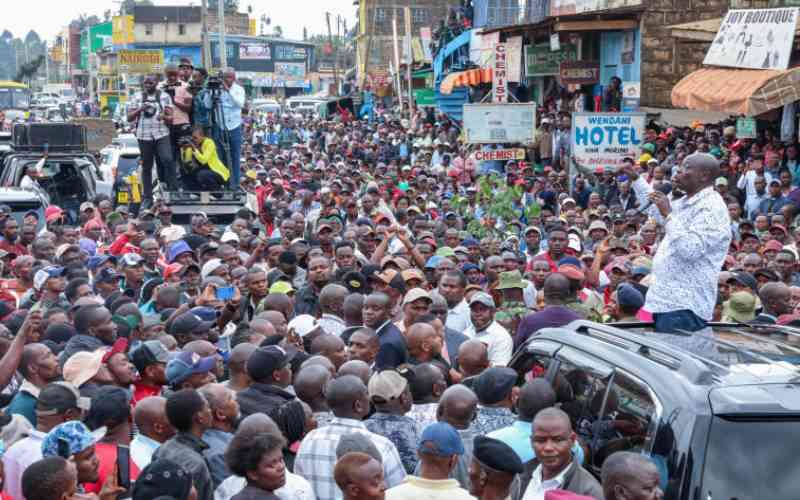×
The Standard e-Paper
Join Thousands Daily

Deputy President Rigathi Gachagua has come out as an aggressive and extremely daring leader as he weathers the storm in the face of adversity amid criticism from leaders in the Kenya Kwanza administration.
From his forays into the Mt Kenya region, it appears he is not going to let the guard down anytime soon despite repeated calls from fellow leaders in government, parliament and the Kenya Kwanza front that he should shun what is being described as divisive tribal politics.